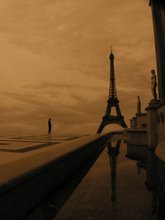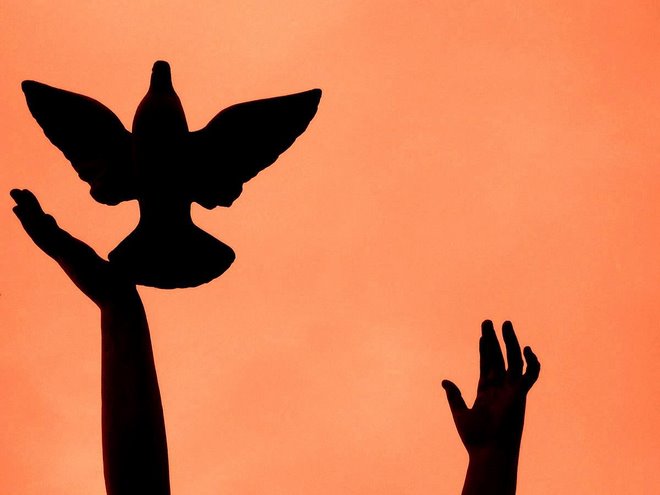Human life is shaped and formed by countless factors. These factors can be physical, logical, emotional, or even supernatural, but perhaps the strongest motivators are instinctual. And no instinct holds more sway than the instinct to survive. Given free reign, the survival instinct will go to any lengths to achieve its purpose. It gives nearly irresistible commands in moments of danger, and when danger is present for longer periods of time then it can create seemingly absurd behaviors and structures as a means of defense. The more extreme the danger and the longer it lasts, then the more unusual and desperate will the structures become.
The most extreme example of this phenomenon is human war. Those who must find a way to exist in this most threatening and torturous of environments inevitably create otherwise impossible structures of friendship, manipulations of human nature, irreversible transformations of their thought processes, all to “on living at any price” (100). As is demonstrated in Erich Maria Remarque's book “All Quiet On The Western Front,” this radical process is the only hope for survival.
Here “survival” does not mean physical survival, since all the soldiers quickly come to realize that “it is simply a matter of chance whether I am hit or whether I go on living” (72). The long-term practical effects of the survival instinct in war exist primarily in the social realm. Nowhere else is it so evident that humans are social creatures with a life-and-death need for community.
The first factor to understand is that these young soldiers have been utterly removed from every aspect of their previous social existence. All that they had been taught both directly and indirectly by their previous life was found to be wanting on the battlefield. This means that every foundation and trust of their young minds was shattered to its core. The main character Paul Baumer says of their teachers, parents, and role-models that “we believed in them. In our minds the idea of authority – which is what they represented – implied deeper insights and a more humane wisdom. But the first dead man we saw shattered this conviction” (9). The teacher who pressed them all into the war to begin with, whom they all formerly respected and who had the best of intentions in pushing them to war, is now perceived as being completely morally bankrupt.
The rawness of war, and the essential changes it works on the nature of young men completely severed their connection with any environment that was not war. When visiting home it is painfully obvious to Paul that “I'm sure that I was just like them myself, before: but now I can't find any real point of contact... These people are different” (121). In fact the people are not different at all, it is Paul and his comrades who have completely changed. The way that their survival instincts have completely remade them causes Paul to feel that even if they physically survive the war, still “I don't think we'll ever get home” (62).
Of course other young people experience this feeling without any involvement in a war. But they have other ways to build a new “home” and other social shelters to run to; namely to romance. But on the battlefront there are no women at all, and thus the soldiers are deprived of another “natural” survival mechanism. The absence of the “fairer sex” has as profound an effect on the soldiers as the disconnection from their homes, though it might be subtler. In the book it is most clearly seen when there appears a poster with a beautiful woman on it, and the reaction of two of the young men is a sudden desire to wash themselves, find clean clothes to wear, and make themselves “presentable,” even though they've given no thought to presentability for nearly two years. From this it can be seen how influential women have been on the development of a cultured and civil society. Without this influence it quickly becomes clear that “a man is basically a beast, and it's only later that a bit of decency gets smeared on top” (31).
Man cannot survive without a social community. In the absence of family, role-models, and romantic interests, the survival instinct finds more unusual ways to fill the void. One way is to make seemingly unfeeling jokes and fun of their deadly situation, even though “it isn't because we are naturally cheerful that we make jokes, it's just that we keep cheerful because if we didn't, we'd be done for” (101). They throw off many of the morals and taboos which aid the construction of “civilization,” but here are only baggage to weigh them down. Those who would never think of stealing do so here without even missing the non-existent guilt, and the embarrassment of public toilets is a an idea from a past life. “Earlier values don't count any longer. And nobody really knows how things used to be” (191). These are all far-reaching creations of the survival instinct, far removed from the form of man in less threatening environments, but vital here.
But the strongest structure created for the sake of survival is “the best thing that the war produced – comradeship in arms” (19). The bond between the soldiers, in the absence of anyone else to bond with, is as intense as any social bond in non-war conditions. It isn't talked about, just understood, that their fellows are all they have to hold on to, all that gets them through another day without losing all will to live. The feeling that someone is dependent on you just as you depend on him is so vital to the human psyche, especially under such circumstances, that the survival instinct creates it through virtually anyone who is available. The result is that “we have a greater and more gentle consideration for each other than I should think even lovers do. We are two human beings, two tiny sparks of life: outside there is just the night, and all around us, death... Before the war we wouldn't have has a single thought in common – and now here we are... aware of our existence and so close to each other that we can't even talk about it” (68).
While this fraternal bond is the only thing that keeps them alive and feeling like human beings, at the same time it is this bond that blocks their road back to human civilization. It is the common experience, the intense daily stress survived side-by-side that forms the fabric of their lives, and that very experience is something that no one in the “real world” will ever be able to relate to. No one will ever be able to understand these young soldiers, and their awareness of this only pulls them closer together in increasing rejection of the outside world.
Besides the growing disconnection with their former homes, another rejection occurs in the realm of political thought. Previously they had either ignored the political world as irrelevant to their lives, or else taken everything at face value when presented with authority. But suddenly politics has a very real effect on them all, and they begin to question the powers-that-be. They are shocked by the realization that “on some table, a document is signed by some people that none of us knows, and for years our main aim in life is the one thing that usually draws the condemnation of the whole world and incurs its severest punishment in law” (137). From here they are able to begin questioning the leaders of their country, even the Kaiser himself. They start to accept the idea that he is human, that he can be questioned, that he might make mistakes or be motivated by selfishness. The knowledge that “the war has ruined us for everything”(63) further embitters them and further isolates them from their own command. No longer are they content to leave the affairs of the world in the hands of the “bigwigs,” they want to have their own say. Beyond this, however, is a feeling that they've been betrayed by a system they trusted, by an existence they trusted. More powerful than any plan for change or hope of deliverance is the the lasting impression is that “everything must have been fraudulent and pointless if thousands of years of civilization weren't even able to prevent this river of blood” (186). Their “political awakening,” so to speak, did not motivate them to greater political involvement, but rather further convinced them its futility.
Along with the self-granted permission to question authority came the ability to question the very tenants of their war-time existence. Their sole function as soldiers is to kill the opposing soldiers, despite the dawning realization that they really have no personal motive for doing so beyond the fact that “if we don't destroy them they will destroy us” (83). Their expanded political understanding leads them to the conclusion that war is caused by a few men in high positions, and that “...out here...the wrong people are fighting each other” (29).
They develop almost a sympathy for those on the other side of no-man's land, seeing that in many ways they have all been thrown together into the same mess for no good reason. “It's funny when you think about it... We're out here defending out homeland. And yet the French are there defending their homeland as well. Which of us is right?” (144). Of course these thoughts cut them off even more from their leadership, from their patriotic parents and teachers, and from their former innocent and trusting selves, and pulls them closer together an unusual substitute family.
The ultimate end for the main character Paul is not his physical death, which is little more than a footnote at the end of the book, but rather the loss of his “family,” his fellows. They represent the only community he has left, the last scrap of safety net his survival instinct has been able to hold together, and when that community vanishes then there is nothing left to live for. He feels that if they all could have returned home a year ago, together and strengthened by their common experience, then they could have changed to world with their righteous indignation. But “if we go back now we shall be weary, broken-down, burnt-out, rootless and devoid of hope. We shall no longer be able to cope” (206). It is the loss of comradeship that takes all the life out of Paul, and the shrapnel that later kills him is little more than the physical manifestation of that lifelessness.
Through all this it can be seen how far humans will go to create a close community, and that when absolutely no material for community can be found then the result is dire. For Paul and his fellows, cut off from every other social interaction, they bond with each other to an extent that is inexplicable for anyone who has not experienced war. The thing that makes this account of the war more terrifying than anything else is the loss of that bond, and the destruction of everyone left behind. As Remarque says in his introduction, the purpose of the story is no more or less than to “give an account of a generation that was destroyed by war – even those of it who survived the shelling.” For anyone who is temped to count the cost of war accounting to the statistics of deaths and survivals, it is vital to remember that true war does not allow any survivors at all.
Welcome to the Penguin's world! Come in and Discover!
Hello friends! I hope you enjoy looking around my blog. I'm planning to keep it updated with pictures, stories, and news of my latest experiences... but since I'm not having too many extreme adventures lately, I'll keep you informed regarding what I'm learning. Very interesting stuff! At least, I think so. I've realized more and more how huge the world is (I know, cliché, but REALLY!), how much cool stuff there is to discover, and what a waste it would be if I just sat back and lived out my life. This blog is an attempt to keep my eyes open, and I hope it will inspire everyone who reads it to do the same. Each week I'll post a list of seven things I discovered about the world that week, and you can check them out on the right in the "Discover Something New" section, or just scroll down to see the most recent one. I hope you find them as fascinating as I do!
As for the Penguins, well, if you don't know what that's about, then I probably don't know you well enough for you to be on my blog! Scat!
For everyone else, Quack Quack, and enjoy. :-)
-Caleb
Saturday, December 22, 2007
Subscribe to:
Post Comments (Atom)



No comments:
Post a Comment